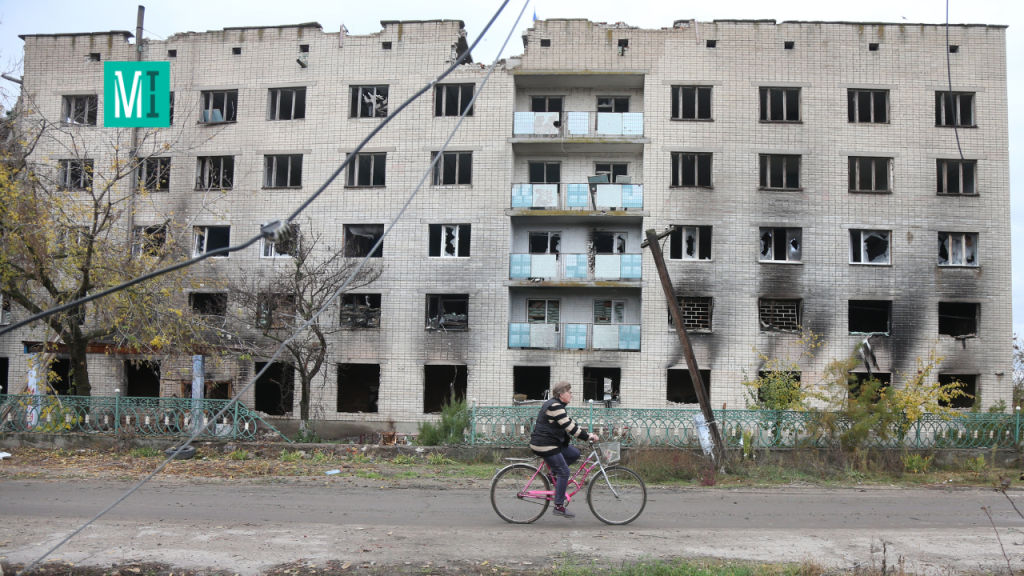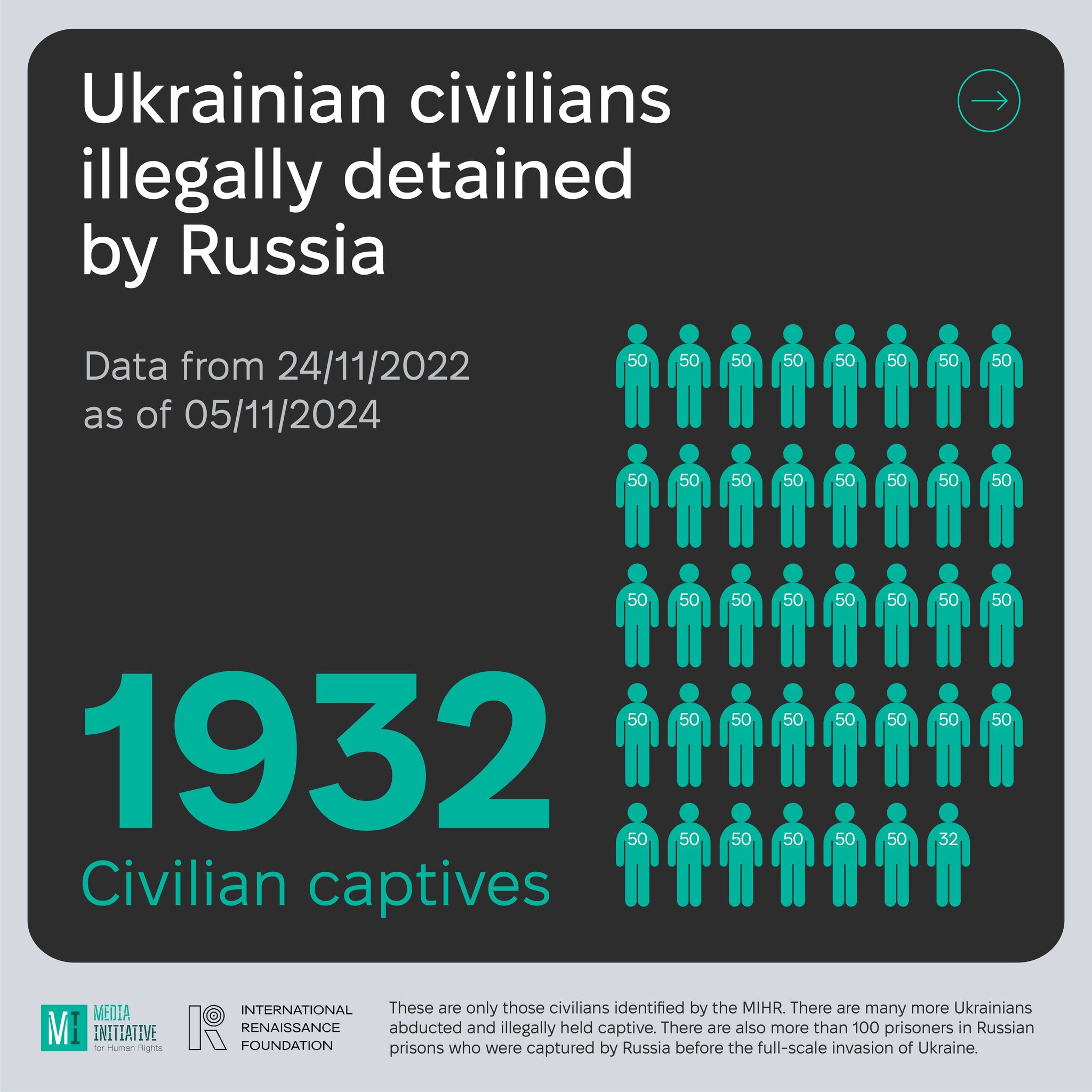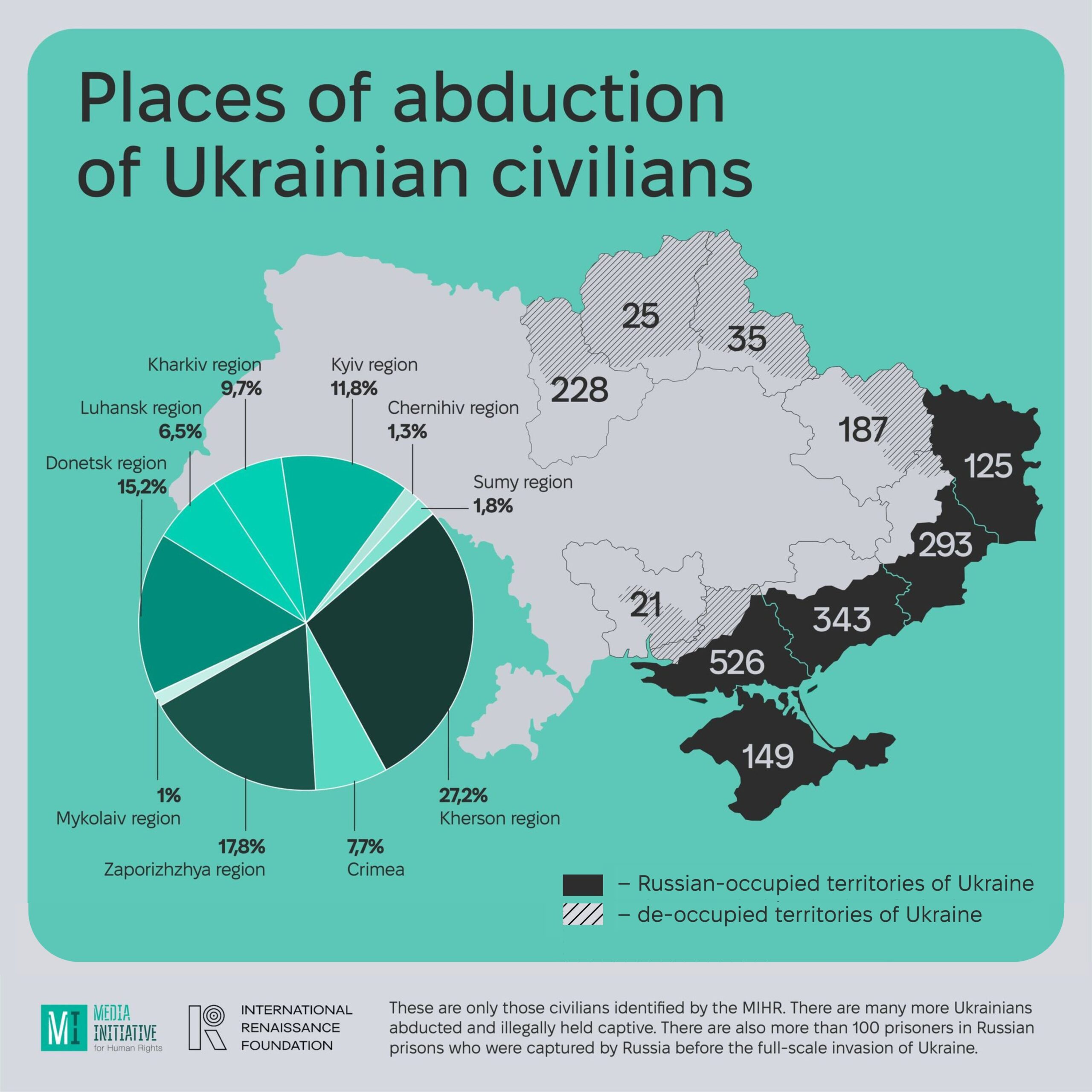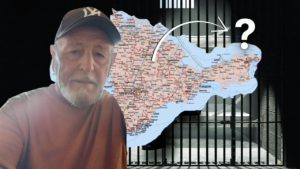Over 500 Civilians Abducted by Occupiers in Kherson Region Remain in Russian Captivity — Infographic

Since its founding, the Media Initiative for Human Rights (MIHR) has been documenting cases of civilian abductions in the temporarily occupied territories of Ukraine. Russia and its proxies have been committing these crimes since 2014. The number of such cases has skyrocketed during the full-scale invasion.
The first abductions and illegal detentions of Ukrainians in Russian places of captivity lasted only a few days. However, since 2015, the length of detention has increased sharply. To date, MIHR has identified over 100 people whom Russia abducted before the full-scale invasion and continues to hold in captivity.
The number of those abducted after February 24, 2022, is significantly higher. As of November 1, 2024, MIHR has identified at least 1,932 such Ukrainians—people of different ages and genders. Some have been behind bars since the beginning of the occupation, meaning they have been held for more than two and a half years.

For instance, at least 288 people abducted during the occupation of Kyiv, Chernihiv, and Sumy regions remain in captivity. These territories were liberated in early April 2022, yet Russia still holds 228 residents of Kyiv region, 25 from Chernihiv region, and 35 from Sumy region.
The highest number of abducted civilians documented by MIHR is in the Kherson region—at least 526 people, including 204 taken from the city of Kherson itself.
More details on the number of abducted Ukrainian civilians and where these crimes occurred can be found in the MIHR infographic.
The infographic presents data on civilians identified by MIHR documenters. However, the actual number of abducted and unlawfully detained Ukrainians is much higher.

After abduction, civilians may be held in places of captivity in the occupied territories of Ukraine for some time. However, Russia’s standard practice is to deport as many people as possible to the Russian Federation. In almost all Russian prisons and detention centers, Ukrainians are subjected to torture. Later, the arbitrarily detained civilians face unlawful trials based on fabricated charges.
This entire system of crimes—illegal detention, abduction, captivity, torture, deportation, forced transfers, and sham trials—bears the hallmarks of a crime against humanity.
Main Image: The village of Arkhanhelske in the Kherson region after de-occupation. Author: Viktor Kovalchuk
This publication was compiled with the support of the International Renaissance Foundation. It’s content is the exclusive responsibility of the authors and does not necessarily reflect the views of the International Renaissance Foundation.






